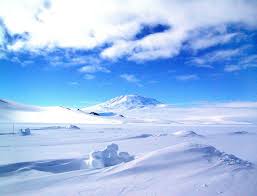Throughout
the history of the planet, the world periodically experienced ice ages when
most of the earth was covered in ice sheets and glaciers. They advance and retreat
rhythmically on the earth’s surface. Scientists believe that the immediate past
ice age ended just 11000 years ago. Many of them believe that it is time for the
polar ice to advance towards the equator. May be global warming due to the pumping
of greenhouse gases in the last few centuries has temporarily halted the rapid advance
of ice sheets.
The ice advance
is called glacial, and the warm period in between interglacial. In the past,
the interglacial period lasted for around 11,000 years. The current
interglacial has already lasted 11,000 years and it might end at any time. Some
scientists think, as mentioned, that fuel
burning has held the ice advance and some others think that it might trigger
another ice age. Anyway, we have already
passed the normal interglacial and a new ice age is imminent, irrespective of
this ‘triggering’. During this period, the cold, dry air above the Arctic and
Antarctica carries little moisture and drops little snow there. An increase in
global temperature could increase the amount of moisture in the air and thus increase
the amount of snowfall. After years of more snowfall, the Polar Regions could
accumulate more ice. These ice sheets will reflect more sunlight that falls on
the earth making it cooler and thus helping the ice to advance.
Unlike the
movie, “The day after tomorrow”, the
next ice age will not happen in a matter of days, but most likely in a few
decades. It may not start during our lifetimes. During the
ice ages, almost all forms of life will find survival more difficult than during the
warm periods like the one we experience now. We will run out of supplies and
need to start living off the land as cultivation would become hard as humans
will have to shift towards the equator. Food, shelter, water and clothing will
be harder to procure. Those who live in the north latitudes will have to shift southward
and there will be too much crowding near the equator which is already
overpopulated. How many will survive? How hard will be our survival? We have to wait and see.
No comments:
Post a Comment